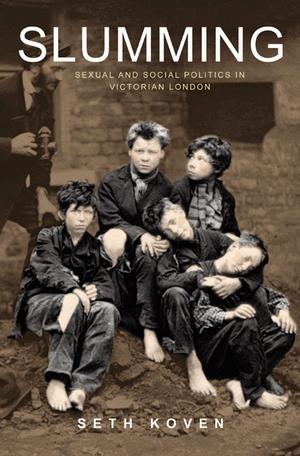 HiddenLives | The nineteenth century saw a huge growth in the population of Great Britain.
HiddenLives | The nineteenth century saw a huge growth in the population of Great Britain.The reason for this increase is not altogether clear. Various ideas have been put forward; larger families; more children surviving infancy; people living longer; immigration, especially large numbers of immigrants coming from Ireland fleeing the potato famine and the unemployment situation in their own country.
By the end of the century there were three times more people living in Great Britain than at the beginning.
Growth of the cities
Although the population of the country as a whole was rising at an unprecedented rate, that of the towns and cities was increasing by leaps and bounds. This was due to the effects of the industrial revolution; people were flocking into the towns and cities in search of employment. For some it was also the call of the unknown, adventure and a better way of life.
The search for employment
Therefore all these factors – population explosion, immigration both foreign and domestic – added up and resulted in a scramble for any job available.
Large numbers of both skilled and unskilled people were looking for work, so wages were low, barely above subsistence level. If work dried up, or was seasonal, men were laid off, and because they had hardly enough to live on when they were in work, they had no savings to fall back on.
Child labour
Children were expected to help towards the family budget. They often worked long hours in dangerous jobs and in difficult situations for a very little wage.
For example, there were the climbing boys employed by the chimney sweeps; the little children who could scramble under machinery to retrieve cotton bobbins; boys and girls working down the coal mines, crawling through tunnels too narrow and low to take an adult. Some children worked as errand boys, crossing sweepers, shoe blacks, and they sold matches, flowers and other cheap goods.
The housing shortage
Low wages and the scramble for jobs meant that people needed to live near to where work was available. Time taken walking to and from work would extend an already long day beyond endurance.
Consequently available housing became scarce and therefore expensive, resulting in extremely overcrowded conditions.
Slum housing
All these problems were magnified in London where the population grew at a record rate. Large houses were turned into flats and tenements and the landlords who owned them, were not concerned about the upkeep or the condition of these dwellings.
In his book The Victorian underworld, Kellow Chesney gives a graphic description of the conditions in which many were living:
‘Hideous slums, some of them acres wide, some no more than crannies of obscure misery, make up a substantial part of the, metropolis … In big, once handsome houses, thirty or more people of all ages may inhabit a single room.
Overcrowding
Many people could not afford the rents that were being charged and so they rented out space in their room to one or two lodgers who paid between twopence and fourpence a day.
Great wealth and extreme poverty lived side by side because the tenements, slums, rookeries were only a stones throw from the large elegant houses of the rich.
The name ‘rookeries’ was given to these dwellings because of the way people lived without separate living accommodation for each family. The analogy being that whereas other birds appear to live in separate families, rooks do not. Neither did the very poor in the tenements of London.


1 comments:
And when was this, eradicated, from the face of Earth, just not in my face mofo. When back to see my old, birth City, many moons ago, getting ready to take a pic, a darker skin man in.to camera site, was going to pull his dick out, and I had to asked my uncle for a clean interpretation. I respected the request. Colon is now a mad place, after dark, helped by bombings of Bush 41. Our refusal as a species to live with heed and consciousness is at end, what the Genesis brings is just a shadow, Yet?
Post a Comment